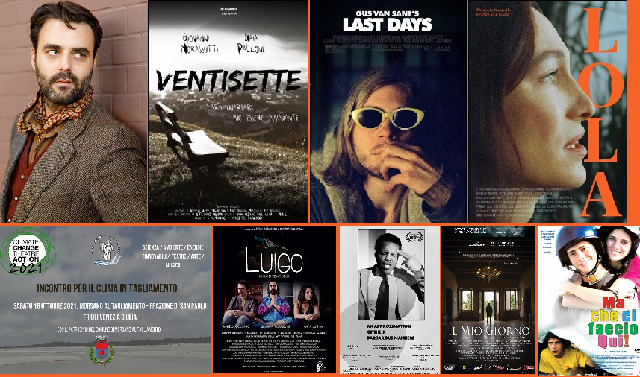Interview by Tiziano Thomas Dossena
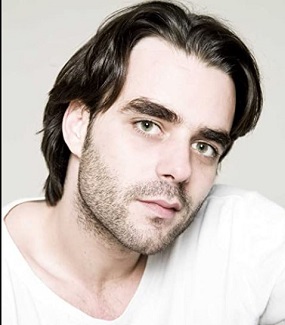 L’Idea Magazine: Hello Giovanni. Your father is Italian and your mother is German. How did their different ethnicity influence you while growing up? How much did the “Italianità” influence your life and career choices?
L’Idea Magazine: Hello Giovanni. Your father is Italian and your mother is German. How did their different ethnicity influence you while growing up? How much did the “Italianità” influence your life and career choices?
Giovanni Morassutti: My parents divorced when I was 4 years old. I grew up in the small city of Padua, near Venice, with my mother and my sister. I have observed my mother’s perspective of being a foreigner. I have always felt like a stranger. For sure, growing up in Italy made me develop more of an Italian mentality, which can be summarized into spontaneity, friendship, beauty, fun, pleasure, style, and irony. It differs from the German mentality, which is more focused on perfection, soundness, quality, reliability, and efficiency.
When I was in New York I got cast in several projects where I have played “Italian,” including a play directed by Katrine Marie Wilce at the New York Comedy Club where I was playing the Latin lover. The “Italianità” has always influenced my career. I would say that I have inherited some sort of charisma from my father. I have also absorbed the German introspectiveness, which is a big plus when it comes down to Method acting. I have always felt like a citizen of the world.
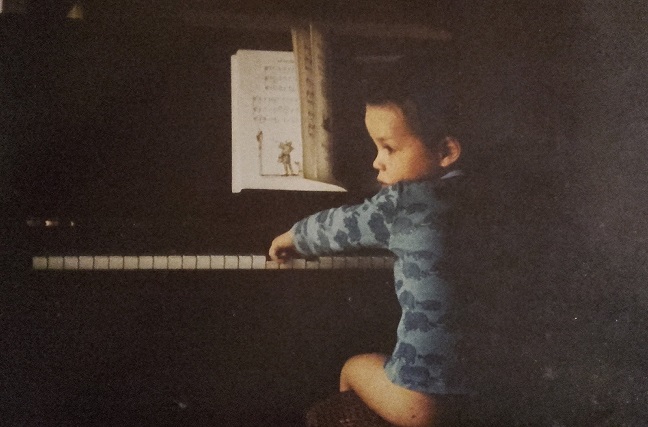
L’Idea Magazine: So, you had an interest in acting since you were young…
Giovanni Morassutti: Yes, as a child, I always loved to exhibit myself and be the center of attention. It made me feel loved and recognized. I was a big fan of Michal Jackson and danced like him, exercising for hours in my bedroom. I was also a boy scout and played a woman at a very young age. It was just wonderful being on stage. I also did some commercials as a kid. When I became an adolescent, a friend gave me the book “Rebel”, a biography of James Dean; that opened up a new world. I was also lucky to meet my cousin Stefano Vitale, an artist and illustrator living in New York at that time. At the age of 16, I had a chance to visit.
New York was love at first sight. At 18, while most of my friends went to the seaside near my hometown, I decided to go to New York for three months. It was great. I was almost about not coming back to finish high school. I have gained lots of confidence in myself. Also opened up to diversity and questioned my identity. For me, New York has been a school both as an actor and as a human being. Also, observing the sessions at the Actors Studio at such a young age has been very inspiring.
 L’Idea Magazine: While in High School in Italy, you studied acting and directing at a workshop with Hollywood star Susan Strasberg. How much effect did that have on you? By the time you completed the workshop, were you certain that you had found your calling?
L’Idea Magazine: While in High School in Italy, you studied acting and directing at a workshop with Hollywood star Susan Strasberg. How much effect did that have on you? By the time you completed the workshop, were you certain that you had found your calling?
Giovanni Morassutti: In high school, I was doing theater with my English teacher. He loved the theater. The encounter with Susan Strasberg has been a blast. I will always thank my mother for having given me the possibility to study with her. Susan said that I had talent. I remember working on a scene from The Outsiders. I recall a moment in which I was lying on the stage and pretending I was sleeping. It felt so natural. She showed me the possibility of becoming an actor and felt that being a professional actor was what I wanted to be.
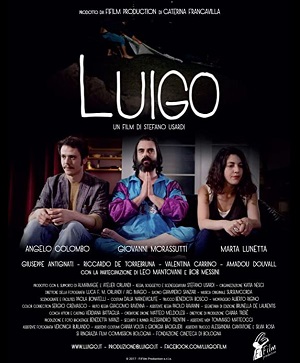 L’Idea Magazine: At 18, you moved to New York, were an auditor at the Actors Studio on 44th Street, a student of Salem Ludwig and William Packard among others at the HB Studio in Greenwich Village, and then you began studying privately with John Strasberg who became your mentor. It sounds like a lot of valid acting ‘internships’. Could you talk a bit about these years of training?
L’Idea Magazine: At 18, you moved to New York, were an auditor at the Actors Studio on 44th Street, a student of Salem Ludwig and William Packard among others at the HB Studio in Greenwich Village, and then you began studying privately with John Strasberg who became your mentor. It sounds like a lot of valid acting ‘internships’. Could you talk a bit about these years of training?
Giovanni Morassutti: The training in New York was emotionally deep. I have started by observing humbly the work of actors and Studio members. After one year of auditing the sessions at the Actors Studio, I stood on my feet and tried it out by myself. That was when I enrolled for two semesters at the HB Studio. Ludwig gave me the structure and awareness of myself. Packard introduced me to poetry in the theater. He said to me: “You can play Shakespeare and be a good Romeo.” It has been a period of exploration, starting to know who I am. New York gave me the possibility to question myself and allow me to open my mind. The encounter with John Strasberg was life-changing.
His sister Susan gave me his number that I had written in a small notebook. It was only after a year and a half that I contacted him. I remember asking Salem if he knew him. He said: “Of course I know him. He has suffered a lot”. Salem was not very talkative. I felt that I wanted to learn from someone who could share more information about the acting process. John was what I wanted from a teacher. It is one of the reasons I believe he was the right teacher for me.
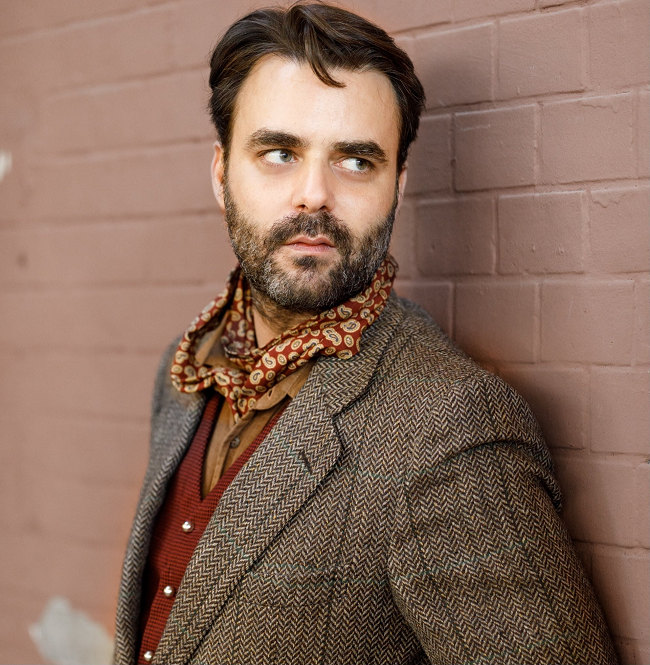
L’Idea Magazine: In what years were you collaborating as a coordinator for Strasberg workshops in Italy? What did that entail?
Giovanni Morassutti: Susan was coming to teach in Italy, also in Padua. After she died, I invited his brother John to teach. He came because of her. He wanted to honor her by teaching there. He came six times. Besides managing the organization, I was translating his work. It felt like being inside his head. I have learned a lot by doing that. I also invited him to teach in Rome and Umbria at La Mama Umbria International. Finally, I brought him to my art residency in Friuli, where I have shot the documentary Personal Dream Space to capture the essence of his teaching within the natural setting of the Italian countryside. Strasberg said about Art Aia – Creatives / In / Residence: “The fact that people come to a place where everyone makes that commitment and they are in the country just changes the atmosphere of work, so there is a kind of relaxation and comradery that is very special. It is a special place.”
Once I moved to Berlin, I have also invited him there. It was great to hang around town and hear his stories when visiting East Berlin, where he was with his family when the wall was still up.
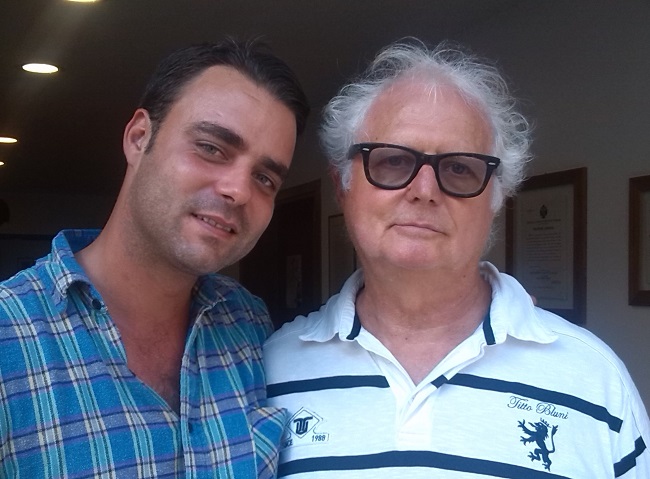
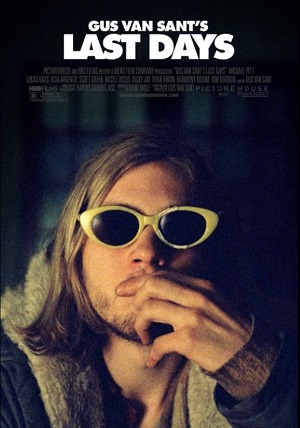 L’Idea Magazine: Was Gus Van Sant’s “Last Days” (2005) your first movie? How relevant was it to your career as an actor to have such an experience?
L’Idea Magazine: Was Gus Van Sant’s “Last Days” (2005) your first movie? How relevant was it to your career as an actor to have such an experience?
Giovanni Morassutti: Being cast in the Last Days was a dream come through.
I will always remember the casting process and the phone call by Mali Finn’s assistant telling me that I had been selected for the movie. I was working at La Mama at that time and remember Ellen Stewart encouraging me to go shooting even if I was in several of her plays during the festival Seven. Mama said: “Go! Do it ! We will find an understudy for one or two days”. She was so open-minded. Last Days was my third movie. The first was The Fugitive, shot in Italy when I was 18, and then in New York; I also took part in the experimental film Three Stories of Love and Angst directed by Jordan Mattos, who later became one of my best friends. I remember shooting downtown Manhattan with interesting people, including Benjamin Liu, Andy Warhol’s assistant. Being in the underground art and film scene of New York has influenced my career and also opened up my interest in visual arts and experimental theatre.
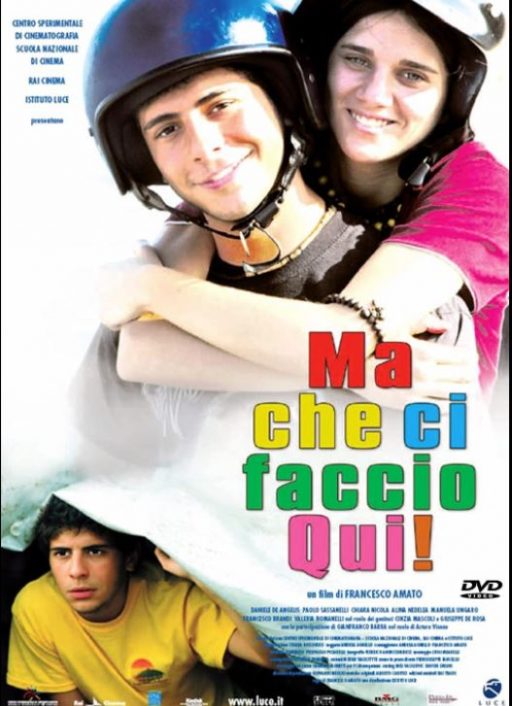 L’Idea Magazine: You graduated in 2008 from the National Film School in Rome directed by actor Giancarlo Giannini. Would you say that school gave you the proficiency necessary to direct a movie?
L’Idea Magazine: You graduated in 2008 from the National Film School in Rome directed by actor Giancarlo Giannini. Would you say that school gave you the proficiency necessary to direct a movie?
Giovanni Morassutti: I have graduated in film acting. During the course, we did some exercises as directors too.
It had been a good program but, in my opinion, it lacked some practical film work. Centro Sperimentale di Cinematografia offers one of the few programs focusing on film acting. In Italy, there is a difference between film and stage acting. There is a tradition of theater acting based on reciting, which very often differs from what is finally called realistic acting. “Being real” is fundamental in film work. In England, which probably has the best acting tradition, there is not a separation. Acting is acting, and drama is drama regardless of the medium, be it a film, a theater play, a television series, or even a voice acting project. The work on the character is the same. In films, you don’t have enough time to discover the character. The art form can only be learned while rehearsing in a theater. To answer your question, I would say that the National Film School taught me how to deal with other actors, but I would not say that it gave me the proficiency to direct a movie.
I am also a director, but mainly in the theater. I would say that my expertise is directing fellow actors.
 L’Idea Magazine: Last year, you won “The Empty Space Film Festival award” for Best Supporting Actor for your performance in the Short film “Lola.” Congratulations. Was this a difficult part to play?
L’Idea Magazine: Last year, you won “The Empty Space Film Festival award” for Best Supporting Actor for your performance in the Short film “Lola.” Congratulations. Was this a difficult part to play?
Giovanni Morassutti: Thanks. Damian is a gay man living in Berlin. It has been an intriguing experience to explore the world of the character. While preparing for the role, I was making eye contact with gay men in the subway, imagining possible circumstances of the character’s life. I also went out to bars, discovering the club scene of the German capital, which is very unique. It was not easy to get involved in the character because the risk was to play a caricature. The director wanted me to play flamboyant. I trusted her direction and did my best to fulfill her vision. I have also worked on establishing a relationship of friendship with the lead actress Cristina Rosamilia since, in the story, my character is the best friend of the main character, Lola. It has been a great experience to work on this film. I am pleased that The Empty Space Film Festival gave me a prize. It is always good to get recognized for your work.
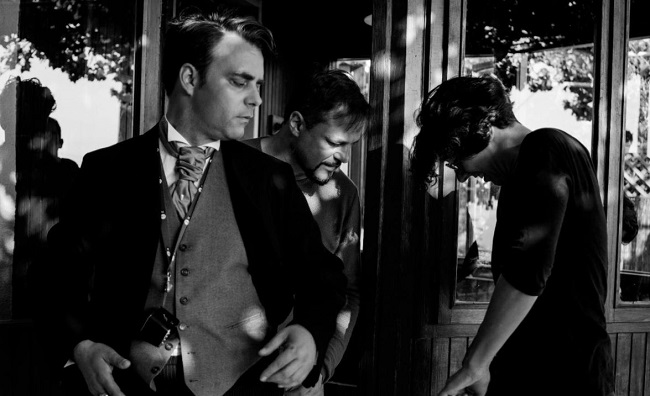
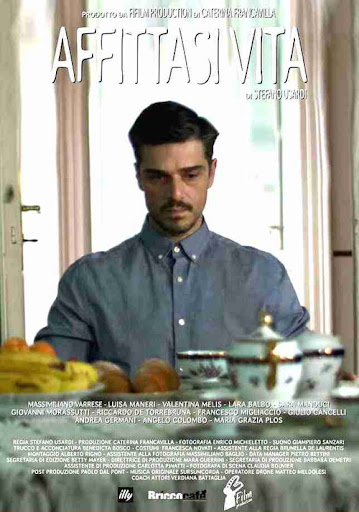 L’Idea Magazine: You are also competing for the “David di Donatello Award” (2021) for your role in “Affittasi Vita,” directed by Stefano Usardi. How excited are you about this opportunity? How interesting was performing in this movie?
L’Idea Magazine: You are also competing for the “David di Donatello Award” (2021) for your role in “Affittasi Vita,” directed by Stefano Usardi. How excited are you about this opportunity? How interesting was performing in this movie?
Giovanni Morassutti: The David di Donatello ceremony happened in February 2021 and unfortunately I have not been nominated but it is life and life is hard. The acting profession is very competitive and it can be brutal. That being said, it was actually very exciting to compete also because Affittasi vita is the 4rth film that I did with Italian director Stefano Usardi. We kind of grew up artistically together. It is a real partnership. Stefano is a very good director, very intuitive. I am very pleased that Usardi was able to have his film competing for the David di Donatello award. Playing in his movies is always an adventure. Affitasi Vita was a challenge. Salvo, the character I have played, was speaking in verses. It was not easy to maintain the truth and simplicity.
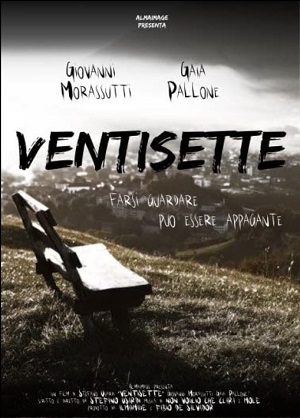 L’Idea Magazine: In the movie “Ventisette” you were the protagonist. What was the movie’s subject? Did you find the part difficult?
L’Idea Magazine: In the movie “Ventisette” you were the protagonist. What was the movie’s subject? Did you find the part difficult?
Giovanni Morassutti: Ventisette was also directed by Usardi. It was about this guy, a very introverted person who liked to watch other people’s lives. It was a romance. The encounter with this young girl, Laura, made him become involved in his own life. The part was difficult because I had to work on being more introverted than I usually am. It was a very interesting process and I have tried to be as simple as possible. I believe that when you are really involved you almost forget that you are acting and that happened several times during the shooting.
L’Idea Magazine: You were also in the TV mini-series “Il Maresciallo Rocca e l’amico d’infanzia” with Giancarlo Giannini and Gigi Proietti. How did it feel to be in a production with such big names?
Giovanni Morassutti: It was great! I was very nervous on set. I have learned so much by observing the work of Giannini, who is one of my favorite actors. Also, playing the same character, only younger, was special. I remember auditing with mustaches to look similar. The TV mini-series was the last episode of the series. I am grateful to have been part of that project. I also keep a good memory of Gigi Proietti. He seemed to be a very humble, generous, and kind-hearted soul.
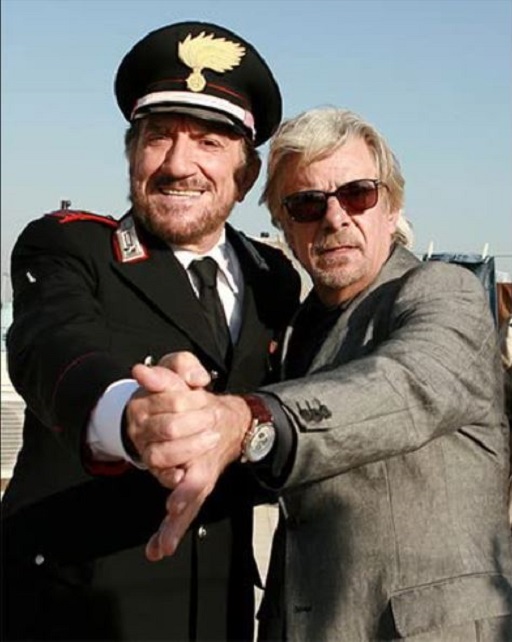
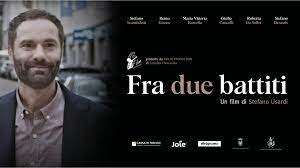 L’Idea Magazine: You have another movie coming to the theaters soon…
L’Idea Magazine: You have another movie coming to the theaters soon…
Giovanni Morassutti: Yes, Fra due battiti is a feature film directed by Stefano Usardi starring Remo Girone and other good actors. It premiered on October 22. We shot it during the pandemic of Covid19. It was not so easy but we could make it work. For me, it was pleasurable to be back in Italy for the shooting. The crew and cast were nice. I have worked with Usardi for over 10 years. There is a certain feeling now. I feel very lucky to have been hired for so many of his movies. It is an artistic collaboration based on professional trust as well as friendship. I hope Stefano will soon get the recognition he deserves.
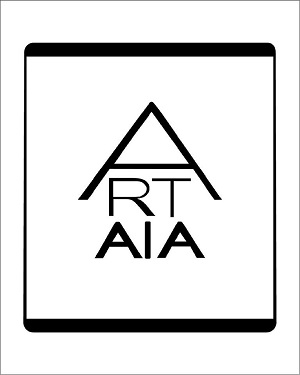 L’Idea Magazine: I know you were in more than 20 movies, but you are not only an actor, you are a cultural entrepreneur, a movie director, and an artist. Let’s talk about these other activities of yours. Let’s start with Art Aia-Creatives/In/ Residence, of which you are the founder and Artistic Director…
L’Idea Magazine: I know you were in more than 20 movies, but you are not only an actor, you are a cultural entrepreneur, a movie director, and an artist. Let’s talk about these other activities of yours. Let’s start with Art Aia-Creatives/In/ Residence, of which you are the founder and Artistic Director…
Giovanni Morassutti: Art Aia was a project conceived by my father, who is also a sculptor and photographer. He came up with the idea of creating a retreat in the countryside to develop creativity. Aia is the area in the old farms where people were meeting and sharing the harvest. The old barnyard was also the center of activities among the farming community of the area. People also gathered to spend time together. The name Art Aia comes from this concept translated to the arts considered as a vehicle to create a sense of community. Art Aia is a place where art practices, ideas, and collaborations can be developed.
I have added the name Creatives In Residence to express that people live in the guest house of the art center while developing their art projects.
My long-term goal is to create a sort of artist colony. Recently I have been focusing the programs on sustainability in the arts and environmental issues. My last project is Climate Change Theatre Action sul Tagliamento where I have collaborated with the local community to create a sense of community.
I am also working on a collective exhibition of local artists that will soon be available on Google Arts & Culture. I would also love to create a live event gathering all these multidisciplinary artists from the region.
 L’Idea Magazine: You are sponsoring an event with the collaboration of Legambiente. What is that about?
L’Idea Magazine: You are sponsoring an event with the collaboration of Legambiente. What is that about?
Giovanni Morassutti: Climate Change Theatre Action is a worldwide series of readings and performances of short climate change plays presented biennially to coincide with the United Nations COP meetings. I have created a “cross-disciplinary” event on the river Tagliamento, engaging multiple public and private partners to spark possible collaborative developments.
I have integrated science, art, food, and technology to foster cross cohesion in Friuli Venezia Giulia.
I am glad that Legambiente, the most prominent and widespread environmental Italian association, has joined the project. I am looking forward to collaborating with them again soon. Their mission resonates with my sensitivity towards the environment. I am concerned about global warming and all related threats to biodiversity, so I want to sensitize people about this issue. The project Art Aia — Creatives / In / Residence represents my contribution to an environmental cause.
L’Idea Magazine: You also have a different organization that you founded, or should I say co-founded, Art Aia-La Dolce Berlin…
Giovanni Morassutti: As a cultural entrepreneur, I have also co-founded a subsidiary space in Berlin, by the name of Art Aia La Dolce Berlin, where I developed art projects and art residencies with many international artists. In 2015, I moved to Berlin to expand my horizons and founded along with my ex-significant, actress, director, and screenwriter Francesca Tasini, a project space where to gather artists from around the world. It has been a great experience to meet these people and offer them a space to realize and present their exhibitions to the Berlin audience. The venue was in a former Spätkauf, a type of convenience shop part of neighborhood culture, where you can meet with neighbors. We have translated this concept to arts and culture.
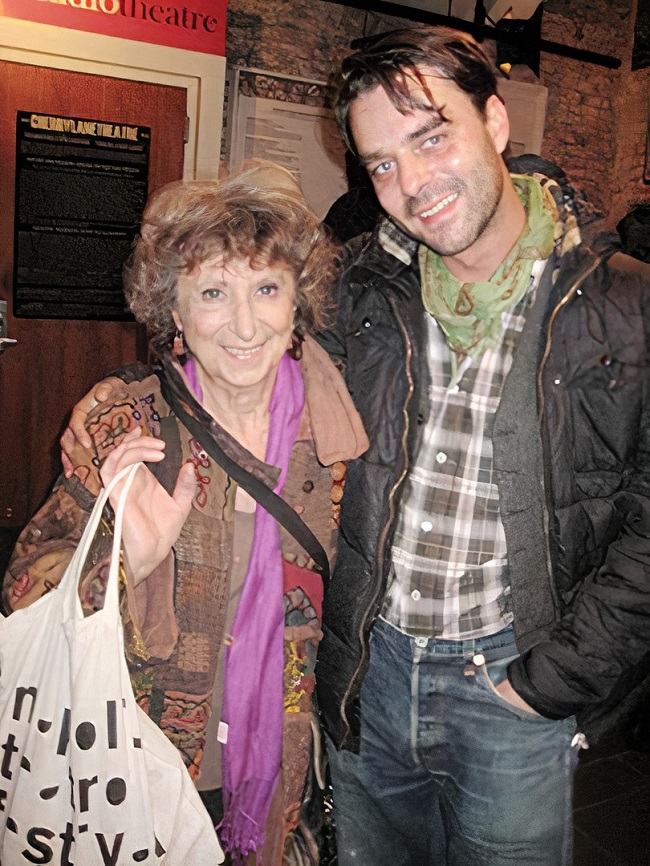
L’Idea Magazine: As a movie or stage director, what is your experience?
Giovanni Morassutti: While studying at the Centro Sperimentale di Cinematografia, I have directed a couple of short films. As a professional, I have directed one project: Personal Dream Space. I have more experience as a theater director. I have staged three plays, including Sola in casa, by Dino Buzzati, presented at the Cherry Lane Theatre in New York. I love directing. As a kid, I guided my friends in staging jokes while on vacation up in the mountains. My work in the theater is connected to Lydia Biondi, a wonderful actress and generous human being that I had the honor to direct in two productions, both in New York and Italy.
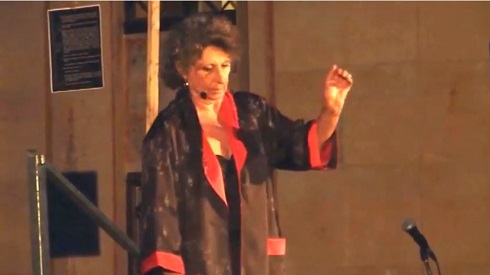
L’Idea Magazine: You define yourself as a Neo-Expressionist visual artist. Could you clarify what that means? What mediums do you use? Any specific subjects you love to interpret or create the most?
Giovanni Morassutti: Growing up in the eighties and nineties, I was influenced by the work of Jean Michel Basquiat, among others. I have always wanted to paint, but I started experimenting regularly only a few years ago. Berlin triggered my desire. I love it as a medium, even if I don’t have, yet, the skills to draw as I would like to. So far, I paint in a rough and violently emotional way. My themes are quite dark, such as mental issues, dysfunctional behavior, and loneliness. I have also created a series of works based on my family of origin. It liberates me from some bad influences rooted in my childhood. I do action painting as well and love to experiment with vivid colors. I use watercolor paint and textile as well as random materials. I also use collage. Some of my paintings have plastic fake eyes installed on the canvas. I haven’t used oil paint yet. I am very excited about trying that out. Painting, for me, is a form of self-expression and also a therapeutic practice. I believe that my style could be defined as Neo-Expressionist due to the charge of subjectivity and the rough way I handle materials. My work Fairy Tale, which is part of my series Eyes, has been described by artist and curator Ali Labgaa as a “mixed media piece on canvas picturing four different groups of characters using watercolor and collage capturing different scenarios, like scenes from a dreamy tale, portraying stories that can be read from a different perspective. All the characters are watching the spectator with a sense of suspicion. The artwork narrates one story with irony and humor. The images and the composition of the piece also bring an element of poetry to the artwork.”
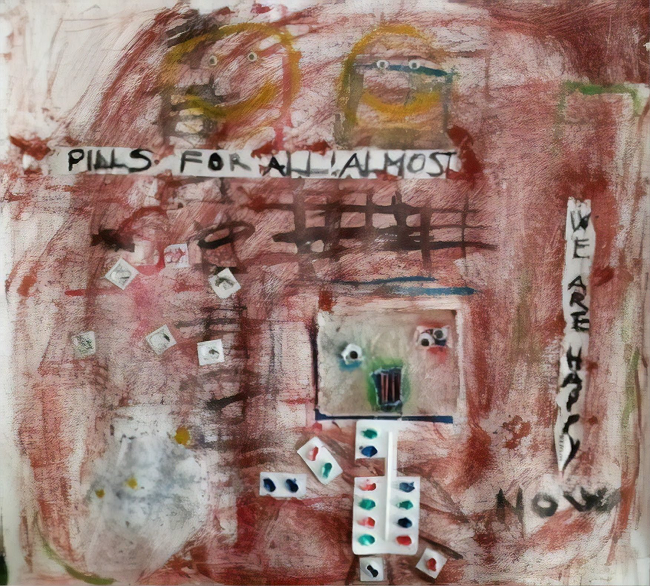
L’Idea Magazine: You wrote “Strasberg Legacy. The history and peculiarities of the discussed “Method” and the “Organic Creative Process”.” Could you elaborate on the title, that is, what is this book about? Was being mentored by Strasberg’s son the trigger to write this book?
Giovanni Morassutti: Throughout my studies, I have always taken notes about Method acting. It is such an interesting and elaborated way of work that triggered my interest.“Strasberg Legacy. The history and peculiarities of the discussed “Method” and the “Organic Creative Process” is more of an essay than a book that I intend to integrate with more information coming from my experience, first with Susan Strasberg, then at the Actors Studio and at the HB Studio, and then with my long time collaboration with John Strasberg. John teaches the Organic Creative Process which is an evolution of the Method created by his father Lee. The origin of this particular way of working is rooted in the work of Stanislavsky, which I have also briefly described in the book. I have also created, through my art residency in Italy, which is partnering since 2020 with the online platform Google Arts & Culture, an online exhibition available to a global audience by the same name.
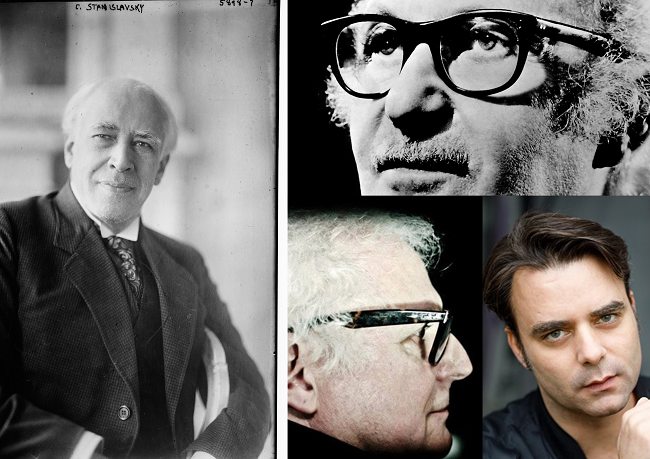
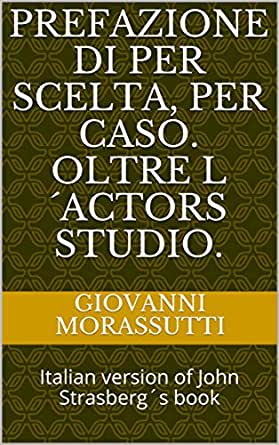 L’Idea Magazine: You also wrote a preface to the Italian version of John Strasberg’s book “Accidentally on Purpose: Reflections on Life, Acting and the Nine Natural Laws of Creativity”…
L’Idea Magazine: You also wrote a preface to the Italian version of John Strasberg’s book “Accidentally on Purpose: Reflections on Life, Acting and the Nine Natural Laws of Creativity”…
Giovanni Morassutti: Yes, I had the honor of writing the preface of the Italian version of Strasberg’s book. Accidentally on Purpose has been translated into Italian and published by Dino Audino, a well-known Italian publisher founded in 1987. The best part of writing the preface has been collaborating with the author, recalling all the memories of my relationship with Mr. Strasberg for almost 20 years. John Strasberg is not only my mentor but also a good friend.
L’Idea Magazine: If you could define yourself with three adjectives, what would they be?
Giovanni Morassutti: Sensitive, Pure and Egocentric.
L’Idea Magazine: Any dreams you wanted to share with our readers?
Giovanni Morassutti: I dream about an equal and just world where everyone can experience the feeling of drinking water and not have to worry about food.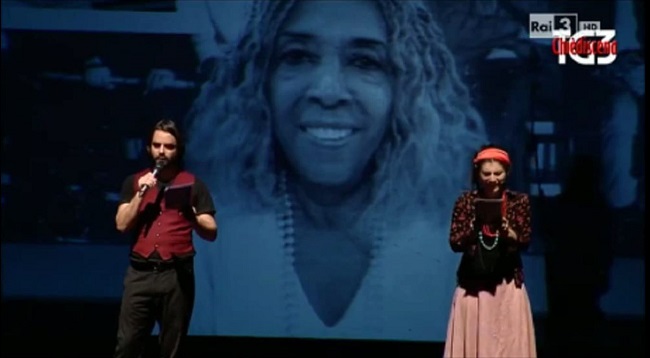
L’Idea Magazine: If you could meet an individual from the past or the present, anyone of your choice, who would that person be, and what would you like to ask?
Giovanni Morassutti: I guess Jesus Christ. I would like to ask him for advice on how to live my life the best I could.;
L’Idea Magazine: A message for our readers?
Giovanni Morassutti: Life is short, try to follow your dreams and do what you really want to do.


